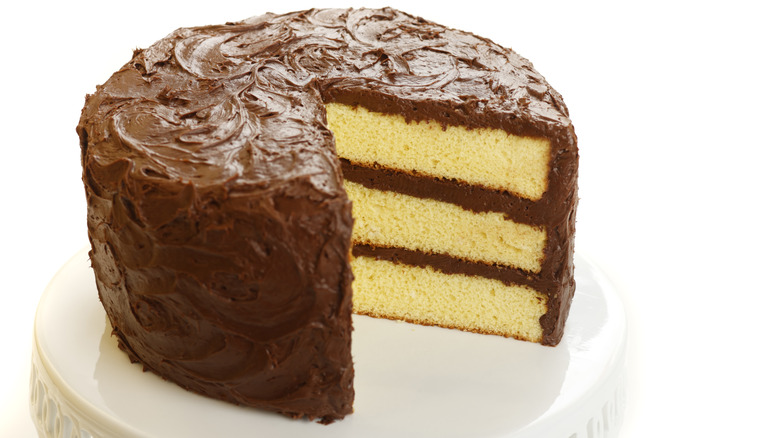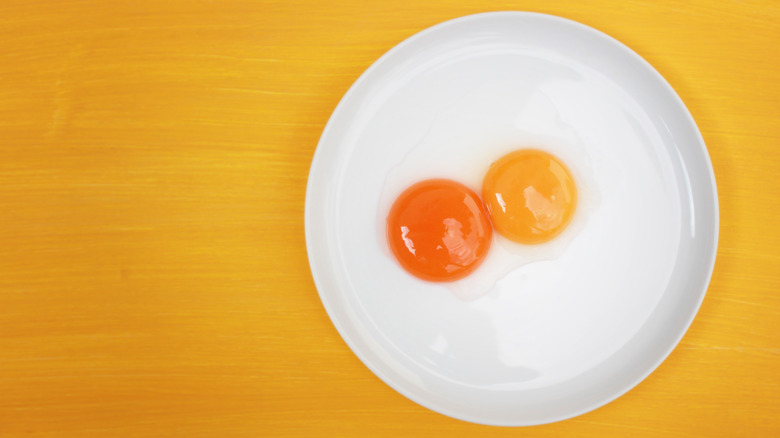For Naturally Yellow Cake Consider Using Duck Eggs
Chances are you've had plenty of yellow cake in your life. It's a classic choice for birthdays and celebrations. Yellow cake is essentially a vanilla cake that gets its coloring from the eggs used in its creation. It can be filled with almost any jam, compote, fresh fruit, or candy, and goes well with whatever frosting flavor your heart desires. It differs from white vanilla cake in that white cake only uses egg whites while yellow cake uses the entire egg, per The Kitchn. It's pretty much universally understood that when a recipe calls for eggs, it's chicken eggs that are to be used, whether local, free-range, organic, white, or brown. Unless you're making a vegan cake, eggs are an essential ingredient in cake baking. In a separate article, The Kitchn explains that eggs provide structure, richness, and moisture to cake and other baked items like cookies.
As far as the egg size goes, well-seasoned bakers probably agree with Bon Appétit in that using large eggs is pretty standard. By using this size egg in your yellow cakes, you'll get a nice, familiar yellow tint. According to Barefoot Contessa, Ina Garten uses nothing but extra large (or jumbo) eggs in her recipes. But you can go even bigger, and if you're making a yellow cake, you'll be delighted at the bright color you'll achieve. The secret lies in using duck eggs.
Not so mellow yellow
Celebrity chef and cookbook author extraordinaire Nigella Lawson says that duck eggs are great for baking because the extra protein in them will give cakes a better rise and richer flavor. The Kitchn explains that a duck egg is slightly larger than a jumbo-sized hen's egg and, because the yolks are larger, will impart a gorgeous yellow color to cakes. This will also make different colored fillings and frostings stand out even more. While your cake will look fantastic, it very well may be the best-tasting yellow cake you've ever made. The Holly's Kitchen column in the Richmond Times-Dispatch outlines an experiment in which the author made cupcakes using hen's eggs in one batch and duck eggs in another. The recipes were identical outside of the eggs. Upon baking and blind taste-testing, the duck egg cupcakes rose higher in the oven and received more praise than the hen egg cupcakes.
According to Hearth and Haven, duck eggs contain more vitamin B-12, protein, and omega-3 fatty acids than hen's eggs. WebMD points out that duck eggs contain half more vitamin A than chicken eggs. They can be almost universally substituted for chicken eggs, so don't just save them for your cakes, but try them scrambled, in pancakes and waffles, souffles, and frittatas. Your creations will be lighter, fluffier, richer, and more yellow than you're used to.

